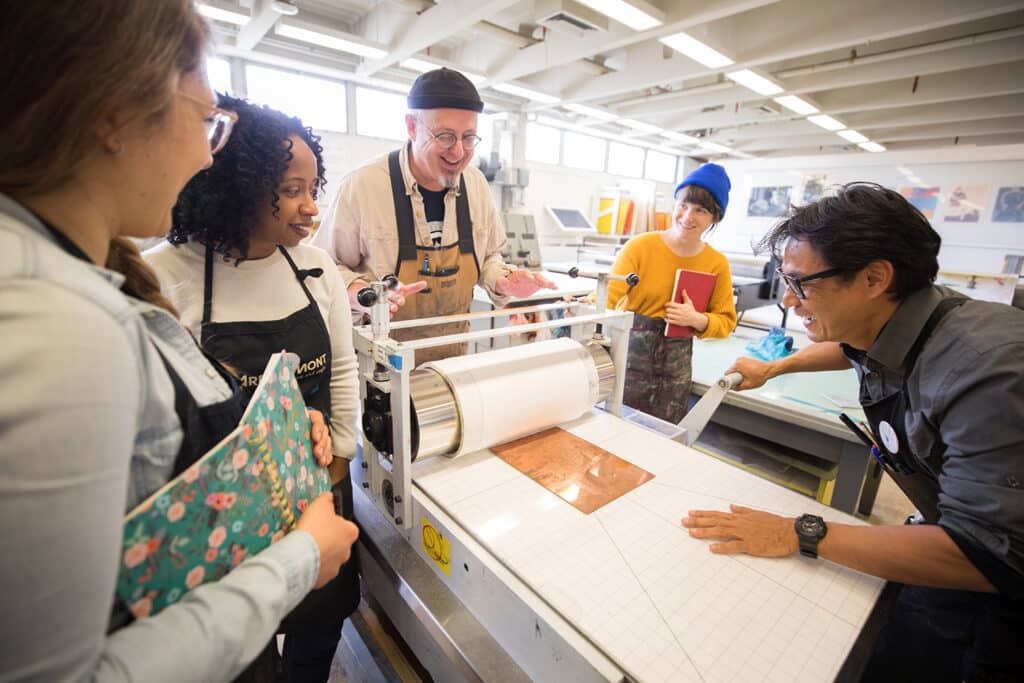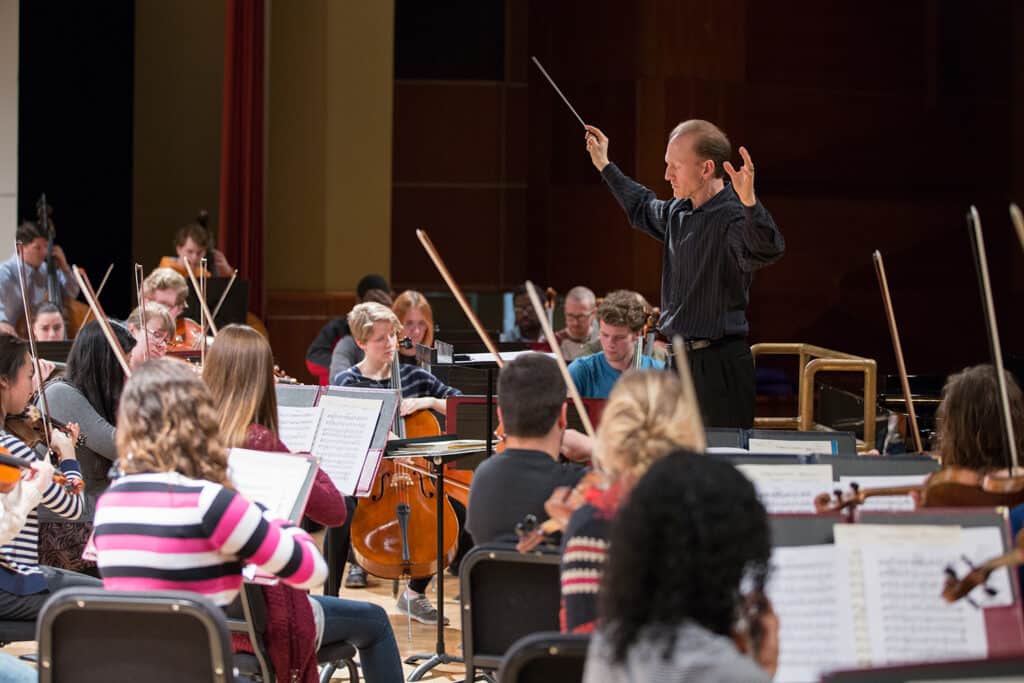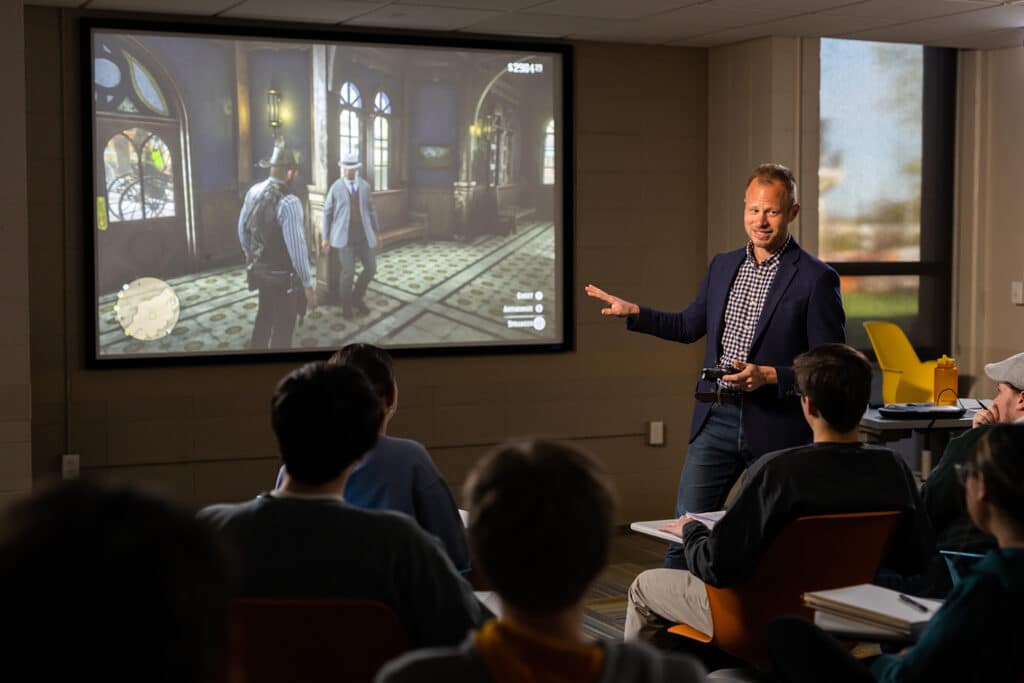UT Ready to Lead a New Era of Humanities and Creative Work

UT Knoxville’s theatre program has been called a “Southern jewel of a program” by those in the industry, our printmaking program consistently ranks among the top five in the country, and we are a leader in National Endowment for the Humanities fellowships, including three awarded to faculty so far in 2023.
UT has always been deeply committed to advancing humanities and fine arts. From top-tier faculty and innovative programs to sold-out performances and emerging digital humanities research, Tennessee has long attracted artists, creatives, and those who study and appreciate their work.
Now UT is paving the way for a new era of humanities and creative work—one that connects the exploration of the human experience with fields like medicine, energy and environmental sciences, and data studies.
“The direction in which the humanities at the national level are moving is completely in sync with the land-grant mission of the University of Tennessee,” said Amy Elias, director of the UT Humanities Center, in a recent profile. “We are bringing our expertise to new scholarly fields and public communities to help make people’s lives better.”
Last year, Elias joined Chancellor’s Professor Suzie Allard from the School of Information Sciences and Jagjit Nanda, Distinguished Staff Scientist at Oak Ridge National Laboratory, to teach a novel graduate course on energy storage devices that wove together humanities, data science, and engineering. While Nanda taught the construction and science behind lithium batteries, Allard focused on user experience and design, and Elias explored the cultural impacts of electricity and batteries.
The collaboration is an example of how humanities and the arts are no longer siloed inside their own departments but are an increasingly valuable part of our interdisciplinary programs and curricula.
Earlier this year we announced a transformational investment in the Humanities Center, committing more than $700,000 annually from the College of Arts and Sciences, the Office of the Provost, and the Office of Research, Innovation, and Economic Development in support of Elias’s vision of fortifying the center as a self-sustaining nationally recognized hub for humanities research.
We are also investing in the creation of the College of Music and the College of Emerging and Collaborative Studies—part of the first academic restructuring to take place at UT in 50 years. These moves are helping to position the university for the future. Transitioning music programs from a school within the College of Arts and Sciences to a stand-alone college will help attract and train the next generation of performers and create interdisciplinary programs that prepare graduates to join Tennessee’s thriving music industry. Meanwhile, the College of Emerging and Collaborative Studies will provide fertile ground for new degree programs and research that cross humanities with the hard sciences.
As part of the new campus master plan, we have identified a hub for arts and humanities that brings these creative disciplines into the heart of campus and includes a new building to house their departments. Part of that hub will be the new Jenny Boyd Carousel Theatre, which — along with venues like the Clarence Brown Theatre, the Natalie Haslam Music Building, and the Downtown Gallery — provides a gateway that connects our art and artists to the broader community.
A vibrant arts scene and robust humanities research have always been an important part of our mission of education, research, and service. As we continue to build on our momentum as a university, we know that investing in this new era of interdisciplinary research and creative work will position us for the future.




